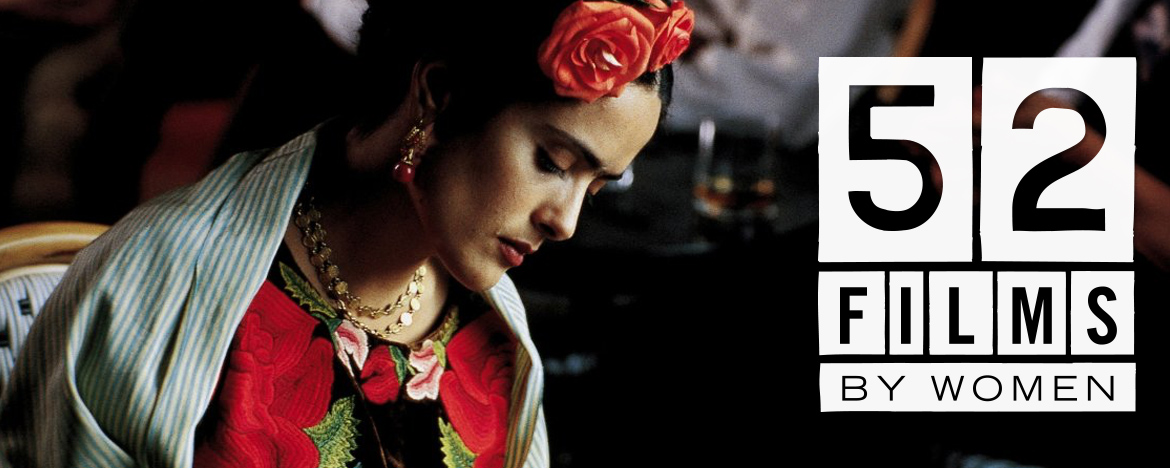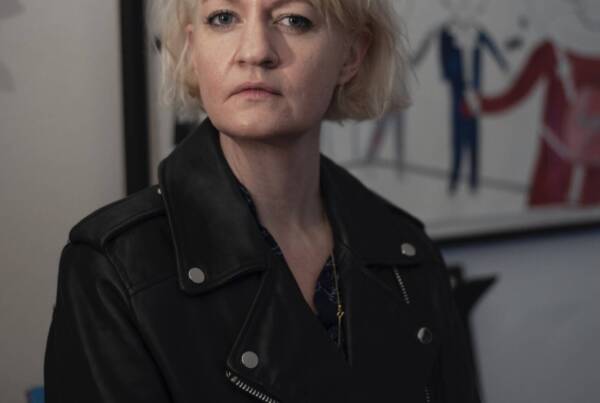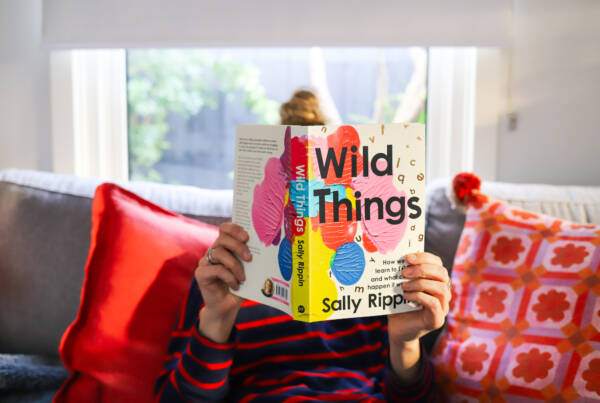Writing by Ruth Richards // Not only does taking the #52FilmsbyWomen pledge help actively support women filmmakers by watching and sharing their work, it’s a great way to broaden your own film experiences.
Writing by Ruth Richards
In 2016, of the top 250 domestic grossing films in the US), “Women accounted for 7% of directors, down 2 percentage points from 9% in 2015 and 1998. Last year, 92% of films had no female directors.” 1
These are the figures from The Celluloid Ceiling, which has tracked the employment of women in film (behind the scenes) for nineteen years. The study is sponsored by the Center for the Study of Women in Television and Film, San Diego State University. Such statistics will likely come as no surprise to the women working behind the scenes in film and television, as well as the critics and movie lovers who champion their work. The report is fascinating, if disheartening: even as the percentage of writers working in the top 250 grossing films of 2016 slightly increased from previous years (to 13%), the percentage of executive producers, producers, editors, and directors have all decreased. On the plus side, the percentage of supervising sound editors has increased by 3 percentage points from 2014 to the staggering figure of 8%—what a time to be a female sound editor!
This is where the Women in Film organization comes in. They have asked people to pledge to watch one film a week by a woman for one year—the #52FilmsbyWomen campaign—and so far, they have over 10,000 pledges! There are multiple reasons to undertake this challenge, not the least of which being that you’ll discover films and directors you might not have heard of before, including some you will come to really love. An equally good reason is that when women work on films in positions of power (as directors or producers, for example) the number of women working behind the scenes in different crew roles also increases. For instance, the report found that of 500 top films, films with at least one female director had women comprising 64% of writers, compared to women comprising 9% of writers on films with exclusively male directors. Put simply, women will hire more women and give them better opportunities.
I undertook this challenge last year and sadly (though not surprisingly when I consider my own viewing habits) I fell short by nine films. I’m challenging myself again this year (and next year, and the next), hoping to complete it this time. Not only does taking the #52FilmsbyWomen pledge help actively support women filmmakers by watching and sharing their work, it’s a great way to broaden your own film experiences. The challenge includes films from all of cinema history, not just new releases. Last year I watched documentaries, blockbuster features, indie films, and even some classic Hollywood cinema; some films and directors I had never heard of, and others that had been on my radar for a while, but that I hadn’t gotten around to. Perhaps not every film will be a hit (I certainly had a couple of misses) but that’s part of the fun—finding those particular films that blow you away, or stay with you. Besides, it’s not like every film a man has ever made is a masterpiece either.
You can watch films by women for this challenge anywhere or in any way—through streaming services, renting or buying digitally, at festivals, on disc, or even a general cinema 1 Martha M. Lauzen, Ph.D. “The Celluloid Ceiling: Behind-the- Scenes Employment of Women on the Top 100, 250, and 500 Films of 2016” release. Admittedly, this last option is going to be the most difficult—part of the reason this challenge was created is that not enough women are given the chance to direct the big-budget features. I’ve begun a list of films that you can watch this year to get started on the challenge:
- Jasper Jones (Directed by Rachel Perkins, in cinemas March 2nd )
You might have seen a Rachel Perkins film before—her previous works includes Bran Nue Dae, Radiance, and One Night the Moon, and she is also the co-creator of Redfern Now. Perkins is an award winning filmmaker of the Arrernte and Kalkadoon nations, and is the founder of production company Blackfella Films (her list of accomplishments goes on!). Jasper Jones is based on the novel of the same name, and includes a cast led by Toni Collette, Hugo Weaving and Dan Wyllie. Set in 1969 in an isolated town where gossip and judgment are rife, Charlie Bucktin (Levi Miller) is woken late one night by Jasper Jones (Aaron L. McGrath), a mixed race outcast, who shows Charlie something that will change their lives forever.
- 13th (Directed by Ava DuVernay, available on Netflix)
13th is Ava DuVernay’s documentary about the prison system in the United States, and the systemic racial inequality that feeds into it—a harrowing but necessary film. DuVernay herself is achieving a great deal—she’s currently shooting Disney’s A Wrinkle in Time, which is set for release in 2018. With a budget of over a $100 million dollars, this makes DuVernay the first woman of colour to direct such a high budget feature. If you don’t have access to Netflix, you can also check out her Oscar- nominated feature film Selma on DVD, which chronicles Martin Luther King’s campaign for voting rights in 1965. Selma was nominated for Best Picture, even though DuVernay did not receive a Best Director nomination, which caused much outcry at the time.
- What Happened, Miss Simone? (Directed by Liz Garbus, available on Netflix)
Another documentary suggestion, because I love them, and this one is a must see. If you’re not familiar with Nina Simone or her music (as I wasn’t, though I can almost guarantee once it starts you’ll recognize a tune), this documentary serves as a perfect, comprehensive introduction. Simone’s life and struggles as a singer, pianist, and civil rights activist are laid bare, partly thanks to interviews with those closest to her. By the film’s end it is clear exactly why Simone earned the title ‘High Priestess of Soul’. A week hasn’t gone by since I’ve seen this film that I’ve not listened to her music.
- The Edge of Seventeen (Directed by Kelly Fremon Craig, in cinemas now with a home release no doubt to follow)
The directorial debut of Kelly Fremon Craig, starring Hailee Steinfeld, is generating positive reviews, and is being touted as a fresh new addition to the teen coming-of-age/comedy genre. Nadine’s high-school life becomes complicated when her best friend starts dating her older brother. I’m still trying to organize myself and head to the cinema to see this, but positive reviews from friends have left me almost certain I’ll enjoy it. The rather broad category of ‘teen films’ is often much maligned, so any film that speaks to the complexity of the genre are most welcome.
- A Girl Walks Home Alone at Night (Directed by Ana Lily Amirpour, available on Netflix, Stan and DVD)
I’m eagerly awaiting the release (or the announcement of an Australian release date for Amirpour’s next feature film, but until that day arrives I’ll happily watch A Girl Walks Home … again and again. The film is self-described as an ‘Iranian Vampire Spaghetti Western’—and if that doesn’t intrigue you I don’t know what else will. Shot in artful black and white, blending genre and conventions, and featuring a mesmerizing performance from Sheila Vand as The Girl, it is everything you didn’t know you wanted from a vampire movie.
So there you go! A good place to look for more inspiration is by checking out the #52FilmsbyWomen hashtag on twitter. I’ve learnt from my ‘failure’ at the challenge last year (and I use the term failure lightly) that even if you don’t manage to watch 52 films, it’s a good way to learn about your own viewing habits, you become more discerning when choosing a film to watch at any particular time, and you build up a nice watch list of films by women for future viewings!
Happy watching!
Other women filmmakers to check out.
Sofia Coppola, Amma Asante, Gillian Armstrong, Mira Nair, Agnes Varda, Kary Kusama, Ida Lupino, Rebecca Miller, Kathryn Bigelow, Patty Jenkins, Gillian Robespierre, Sarah Polley, Jodie Foster, Nora Ephron, Catriona McKenzie, Nancy Meyers, Gurinda Chadha, Jane Campion, Claire Denis, Mary Harron, Amy Heckerling, Kimberly Peirce, Tamra Davis.







